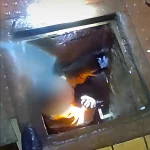Ofcom Improve UK Spectrum Sharing for Mobile and Wireless Broadband

The UK telecoms regulator, Ofcom, has today announced a series of improvements to their spectrum sharing framework, which among other things will “significantly increase the availability of spectrum” to help improve the performance and business models of using this to foster new types of 4G, 5G, wireless broadband and mobile services etc.
The existing spectrum sharing framework was first introduced in 2019 (here) and paved the way for lots of smaller mobile and fixed wireless broadband networks to be created in order to deliver local coverage (via 4G, 5G and other wireless technologies), such as for industrial, farming or residential connectivity etc. The shared access licences initially covered spectrum in four specific bands – 1800MHz, 2300MHz, 3800 – 4200MHz and 24.25 – 26.5GHz (the latter was only available for indoor low power licences).

Since then Ofcom has seen growing interest in this form of access, with more than 1,500 licences now issued, and a number of other countries adopting similar approaches. Suffice to say that demand is only expected to grow and, as a result of that success, the regulator is now introducing changes to improve local spectrum availability – especially in the busiest bands (e.g. 3.8-4.2 GHz).
Advertisement
In addition, they’re also making more spectrum available by adding 2320-2340MHz to the framework, but “will not proceed” with their proposals to increase prices on our existing Shared Access products in 3.8-4.2 GHz.
Ofcom currently offers two primary types of Shared Access Licence (distinguished primarily by permitted power levels) to cater for different types of use, which we’ve summarised below.
Shared Access Licences
• Low power licence (per area licence): This allows users to deploy the required number of base stations in a circular area with a 50-metre radius without further authorisation from Ofcom. For large sites, people can apply for multiple licence areas to achieve the required coverage area.
• Medium power licence (per base station licence): Given the higher transmit power and larger potential interference area, this licence will be issued on a per base station basis and, generally, for deployments in rural areas only, where they are unlikely to constrain low power users.
The core changes being introduced by Ofcom have been summarised below.
Ofcom’s Spectrum Sharing Changes for 2024
To increase the availability of spectrum, and enable new use cases, we are taking the following steps:
• Updating our coordination approach to improve spectrum supply across the UK:
– In the 3.8-4.2 GHz band, we are taking steps to significantly reduce separation distances between Shared Access users. In combination with an updated approach to coordinating with UK Broadband, and new Building Entry Loss assumptions, this will increase access to the spectrum required to deliver innovative new services.
– Across all Shared Access bands, we are also improving users’ ability to access and share spectrum. We will now allow users to include antenna details in our coordination process to support more sharing, and free up applicants to make their own local coordination agreements.
• Liberalising our rules for sharing to support the development of new use cases.
We will increase by 3 dB the maximum power limit of our ‘Low Power’ product in 3.8-4.2 GHz, supporting wider coverage and lessening deployment challenges. We are also removing a requirement to maintain records for mobile terminals connected to Low Power indoor base stations in the 3.8-4.2 GHz band (the 4 ‘Terminal Registration Requirement (TRR)’), enabling more ‘neutral host’ style solutions.
• Making more spectrum available by adding 2320-2340 MHz to the framework.
This new spectrum will be available for Low Power indoor use only, reflecting the sharing arrangements we have provisionally agreed with the Ministry of Defence to protect its uses (subject to final steps in MOD’s due diligence process).
• Increasing responsiveness and predictability for many Shared Access applications.
A clear and simple ‘premises sterilisation test’ will streamline decisions for exception requests in 3.8-4.2 GHz and 1800 MHz (to authorise use of Medium Power in urban areas and non-standard antenna heights). We will also publish new spectrum availability maps to help users make more informed applications. Finally, we are continuing to work with our spectrum management system supplier to support online applications for Shared Access licences later this year.
The regulator said they’re aiming to have implemented the “majority” of these changes by Q4 2024. In addition, Ofcom are also consulting on further proposals that build on this new coordination and sharing approach to offer even more flexibility and new opportunities in the future.
Advertisement
Ofcom’s Spectrum Sharing Proposals for the Future
Respondents to the consultation indicated a desire for additional flexibility to offer services beyond what we had proposed. In response we are proposing additional measures:
• Providing users with more freedom to operate at Medium Power in most urban areas (in the 1800 MHz and 3.8-4.2 GHz bands, and at heights up to 10m). Whilst we would retain the exceptions process to match demand and supply in the busy Greater London area, applicants for Medium Power in other urban areas would no longer need exceptions. As many exception requests are for Medium Power, this should streamline the application process for many users.
• Encouraging efficient use through a new price point for Medium Power deployments in urban areas that is twice the price of Low Power (i.e. moving to £160/10 MHz in 3.8-4.2 GHz, and to £160 for 2 x 3.3 MHz in the 1800 MHz band). This is to encourage users to use Low Power where this is sufficient for their needs.
• Enabling new business models by removing the Terminal Registration Requirement for mobile terminals connected to Low Power outdoor base stations in the 3.8-4.2 GHz band. This would build on our decision to remove this requirement indoors and support new ‘campus’ style networks and local mobile capacity enhancements.
The related consultation on today’s newest proposals will remain open for feedback until 18th September 2024 and Ofcom will then aim to publish their decisions “as soon as possible thereafter“.
Mark is a professional technology writer, IT consultant and computer engineer from Dorset (England), he also founded ISPreview in 1999 and enjoys analysing the latest telecoms and broadband developments. Find me on X (Twitter), Mastodon, Facebook, BlueSky, Threads.net and Linkedin.
« Andrews & Arnold Clash with Ofcom Over Broadband ISP Switching Woes UPDATE






















































Comments are closed